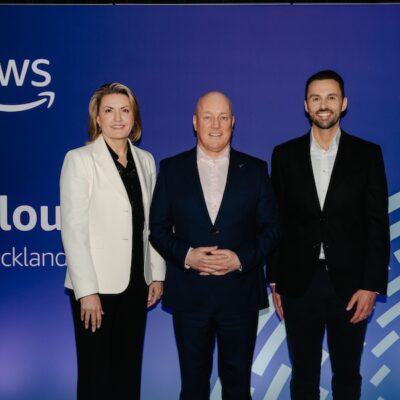Women business owners doing it tough: report
The recently released Mastercard Index of Women Entrepreneurs 2020 report has revealed just how disproportionately impacted women have been by the Covid-19 pandemic worldwide. The report, now in its fourth […]
The recently released Mastercard Index of Women Entrepreneurs 2020 report has revealed just how disproportionately impacted women have been by the Covid-19 pandemic worldwide.
The report, now in its fourth year, shows that women across the world have been disproportionally impacted by the pandemic – with 87 percent of women business owners saying they have been adversely affected.
“Over representation in sectors hardest hit by the economic downturn, the pronounced digital gender gap in an increasingly virtual world, and the mounting pressures of childcare responsibilities are only a few factors that have left women particularly vulnerable,” says the report.
A crisis will always reveal vulnerabilities in the system, and Covid-19 has done that in spades, the report continues. “We have seen the staggering extent of the disparity women in business face. But unlike any other economic downturn, Covid-19 has also paved the way for considerable progress, and we have seen what we can be achieved when priority is given.”
In tackling this stark disparity and unlocking the fullest potential of women in business, the Mastercard Index of Women Entrepreneurs (MIWE) report findings make a compelling case for building on targeted gender-specific policy best practices internationally.
The MIWE report highlights the vast socio-economic contributions of women entrepreneurs across the world, as well as providing insight on the factors driving and inhibiting their advancement.
According to the report, New Zealand in 2020 retained its position as the top ranked economy in the Asia Pacific region, and fourth globally, for its progress and support of the achievement of women entrepreneurs and business owners. Its strong ranking was underpinned by the country’s high representation of female business leaders and professionals and favourable conditions that support female entrepreneurs.
These conditions, revealed in the report, include women in New Zealand having high access to resources to start a business, including extensive and established distribution channels, business networks, and international economies.
Top challenges
Meanwhile, Mastercard’s Global Women SME Insight’s report, which generated these latest MIWE findings, has revealed the top challenges female SME leaders face in business:
- Women entrepreneurs list access to capital as their biggest hurdle.
- Cash is the most popular funding method for women-owned businesses.
- Women are less likely to get loans and lines of credit from large banks.
- Women are still expected to “do it all”.
- Despite advancements, women are still expected to both provide for an nurture the family.
- Professional women have increasing control of family finances and are the primary shoppers.
- 23 percent of female business leaders reported spending six or more hours per day on domestic tasks and caring for family members.
- While key business challenge factors remain similar across gender, women small business owners also often find managing receivables and innovating in process to be more challenging.
- Women tend to find the key elements of managing employee’ payment processes more challenging than men.
- Women small business owners often find managing receivables and innovating in processes to be more challenging.
- 38 percent of women including managing receivables as the top business challenge.
- 41 percent of women including being innovative in processes as a top business challenge.
- Men are more likely to seek out financing for their business.
- Only 25 percent of women were likely to seek financing for their business, compare to 34 percent of male entrepreneurs.
- More women use credit cards, while more men use equity investor.
- Women SME owners are more cautious about using the latest technologies without expert guidance.
- Women find messaging around financial efficiency more appealing, whereas men are more focused on time savings.
- As a group, women-owned businesses are dragging their feet when it comes to using and building their confidence in online marketing, especially social media.
- For the most part, women are waiting for road maps and expert guides. It is a more efficient use of their time to be shown the way rather than to wander down roads that lead to dead ends.
For more click here.






